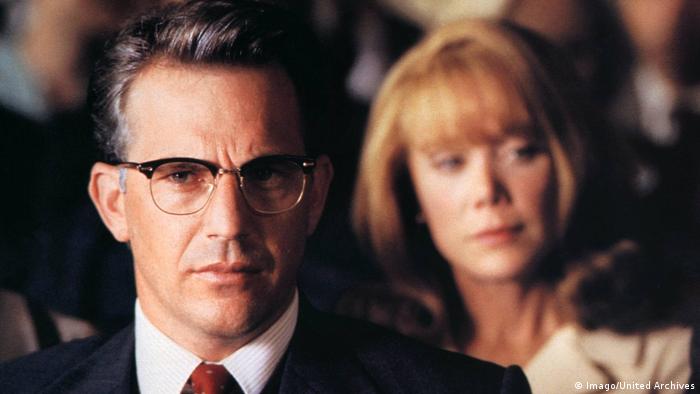First-of-its-kind study sheds light on the psychological impact of antisemitic conspiracy theories on Jewish people
2023/12/08

New research published in the British Journal of Psychology shows that Jewish individuals who believe antisemitic conspiracy theories are prevalent in society experience increased feelings of threat and a tendency to avoid those outside their group. This study, one of the first of its kind, sheds light on the often-overlooked consequences of conspiracy theories on the groups they target.
While a significant amount of research has been done on why people believe in conspiracy theories, there has been little focus on how these theories affect the groups they target. Conspiracy theories can be harmful, often targeting specific groups with accusations of secret, malevolent actions. This new study aimed to understand the impact of such beliefs on Jewish individuals, a group frequently subjected to conspiracy theories.
“We can’t fully appreciate how conspiracy theories divide society unless we consider how the targets of these beliefs are affected,” explained study author Daniel Jolley (@DrDanielJolley), an assistant professor in social psychology at the University of Nottingham. “Whilst research exploring the consequences of those who subscribe to conspiracy theories is undoubtedly important, a notable oversight is the research examining the perspective of the targets of conspiracy theories. Our work therefore sought to explore how conspiracy theories about social groups can have significant negative effects on their members.”
The first part of the study involved 250 Jewish participants, mostly from the United States, Israel, and the United Kingdom. They were asked to estimate how popular they thought various Jewish conspiracy theories were among non-Jewish people. Following this, the participants rated their feelings of threat from these conspiracies and their level of anxiety about interacting with non-Jewish people. The study also measured their preference for avoiding contact with non-Jewish individuals.
The researchers found that participants who believed that conspiracy theories about Jewish people were more popular felt more threatened and showed a stronger preference for avoiding contact with non-Jewish people. However, there was no direct link between the perceived popularity of these conspiracy theories and personal anxiety when meeting non-Jewish people.
The second study took a different approach, using an experimental method with 210 Jewish participants from the United States. The participants were randomly exposed to manipulated information suggesting that either many or few non-Jewish people believed in Jewish conspiracy theories. The participants then rated their levels of intergroup threat, personal anxiety, and avoidance preferences similar to the first study.
Participants exposed to the scenario where many non-Jews believed in conspiracy theories reported higher levels of threat and perceived anger within their group. However, their personal anxiety and avoidance preferences didn’t show significant differences from those exposed to the scenario where few non-Jews believed in these theories. This reinforced the notion that the perceived prevalence of these theories among outsiders could influence internal group emotions, particularly a sense of threat and collective anger.
“Our work focused on the impact of conspiracy theories about Jewish people on the emotions and behaviors of the Jewish community,” Jolley told PsyPost. “Our studies revealed that perceiving Jewish conspiracy theories as popular is linked with Jewish feeling threatened, angry and anxious. These conspiracy beliefs are also linked to Jewish people being more avoidant of non-Jewish people.”
The third study, involving 209 American Jewish participants, built further on these findings. Participants were again exposed to manipulated scenarios indicating varying levels of belief in conspiracy theories among non-Jewish people. This time, the researchers also measured the participants’ willingness to take collective action in support of Jewish people and introduced an opportunity for participants to engage in a simulated online interaction with a non-Jewish person.
The participants who were led to believe that conspiracy theories were widely held showed greater willingness for collective action and were more likely to avoid interacting with a non-Jewish person in the behavioral task. This study provided a crucial link between perceptions, emotions, and actual behavior, demonstrating that the perceived popularity of conspiracy theories can lead to real-world avoidance of intergroup contact.
“One surprising aspect of our findings was the dual effect of perceived conspiracy popularity,” Jolley said. “On one hand, it increased group solidarity within the targeted community, fostering intentions to support fellow members. However, it also fueled a desire to avoid interactions with individuals outside the community. This nuanced perspective adds complexity to the understanding of the consequences of intergroup conspiracy theories, highlighting both positive and negative outcomes.”
These studies collectively highlight a critical aspect of conspiracy theories – their impact on the targeted groups. The findings underscore that conspiracy theories are more than just a societal curiosity; they have tangible, adverse effects on those they target. They contribute to a sense of threat, emotional distress, and social avoidance within these groups, which can exacerbate social divides and perpetuate misunderstanding and prejudice.
“Our work focused on the Jewish community,” Jolley said. “However, we believe that our findings are very unlikely to be isolated to Jewish people. Conspiracy theories target many different groups – from healthcare workers and scientists to entire social groups. The same impacts such as feeling threatened, angry, and anxious, and a desire to avoid others, are likely observed in a wide range of target groups.”
“We hope that our work acts as a catalyst for exploring the impact of perceived conspiracy popularity in other groups, and that such work can provide important insights that can used to support those who are targeted.”
The study, “The impact of conspiracy beliefs on a targeted group: Perceived popularity of Jewish-targeted conspiracy beliefs elicits outgroup avoidant behaviours“, was authored by Daniel Jolley, Jenny L. Paterson, and Andrew McNeill.
© PsyPost









